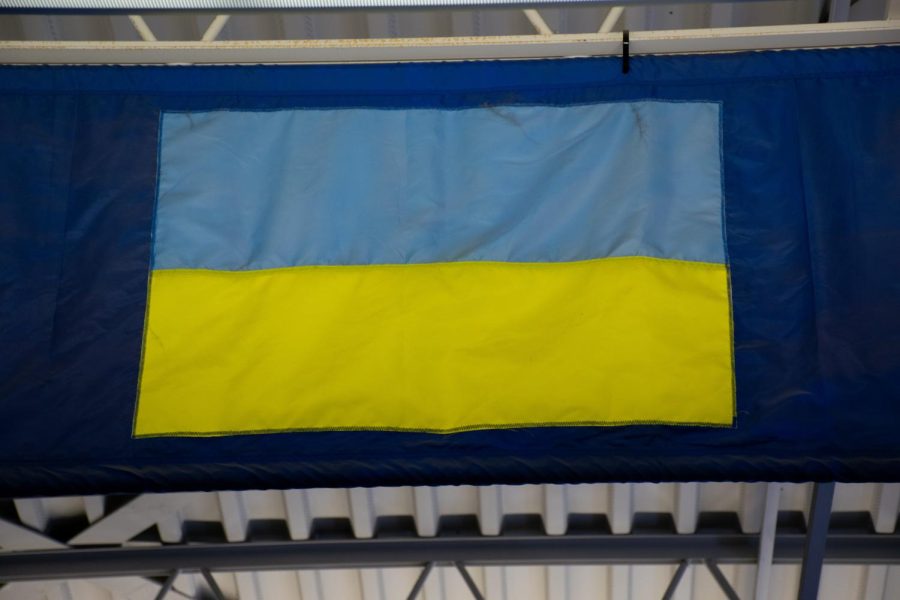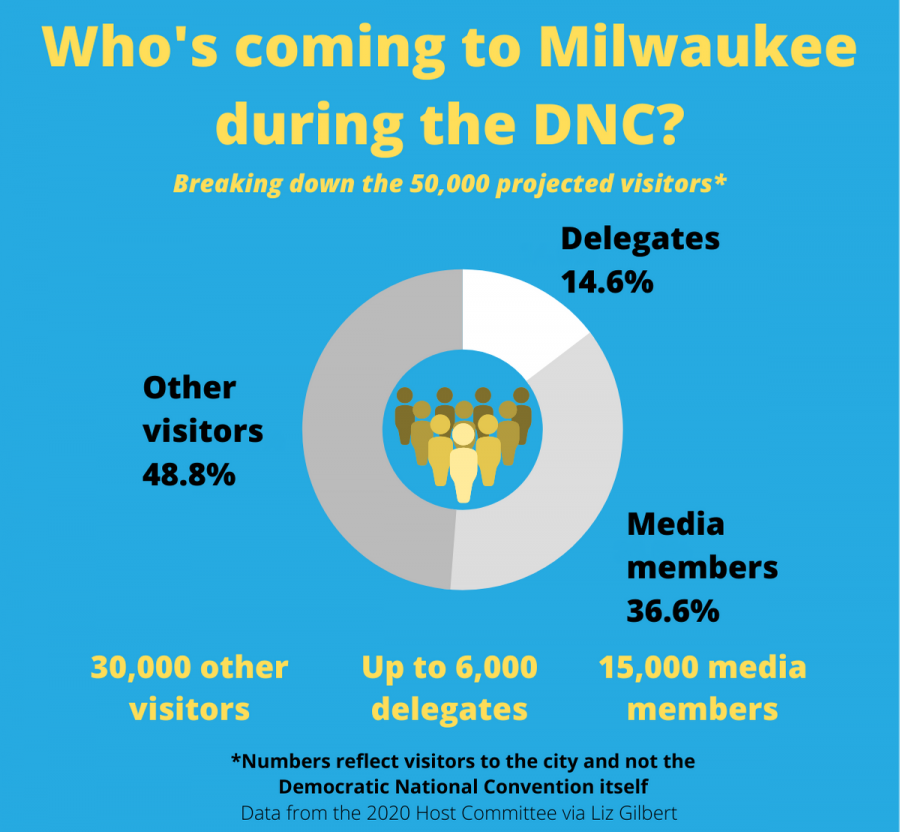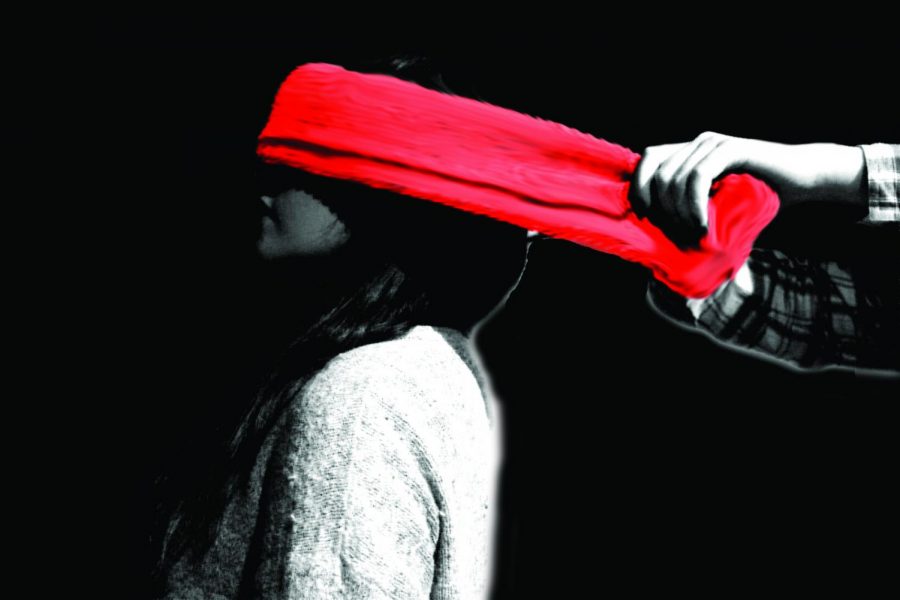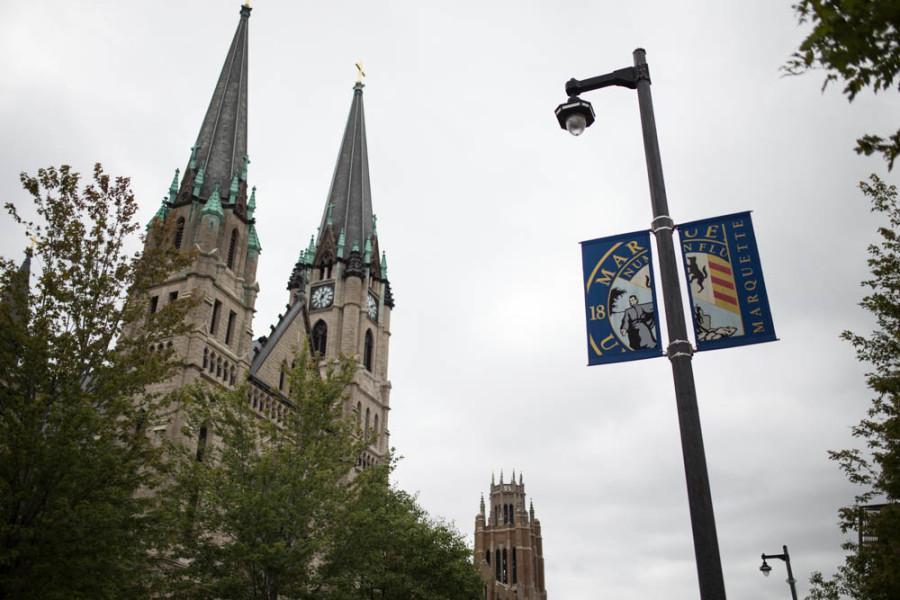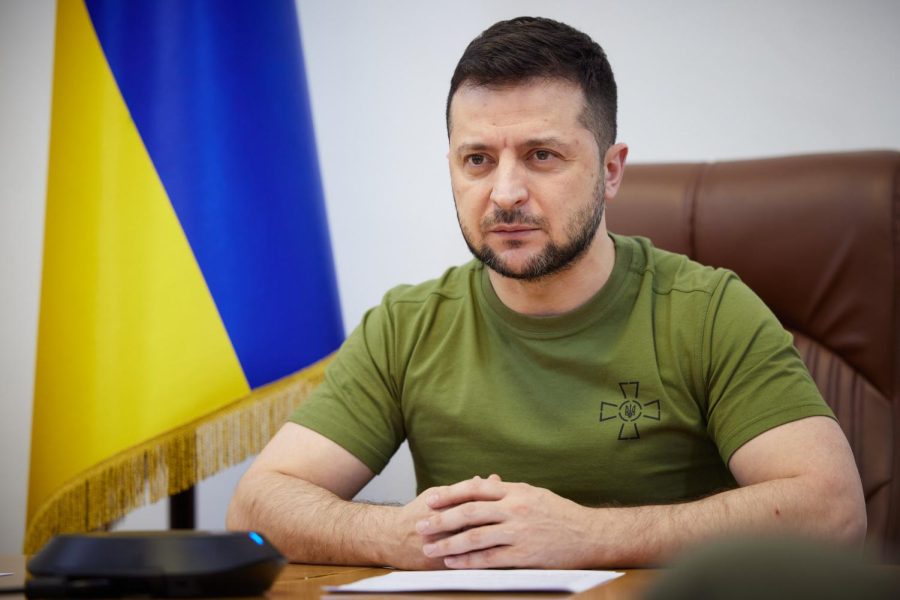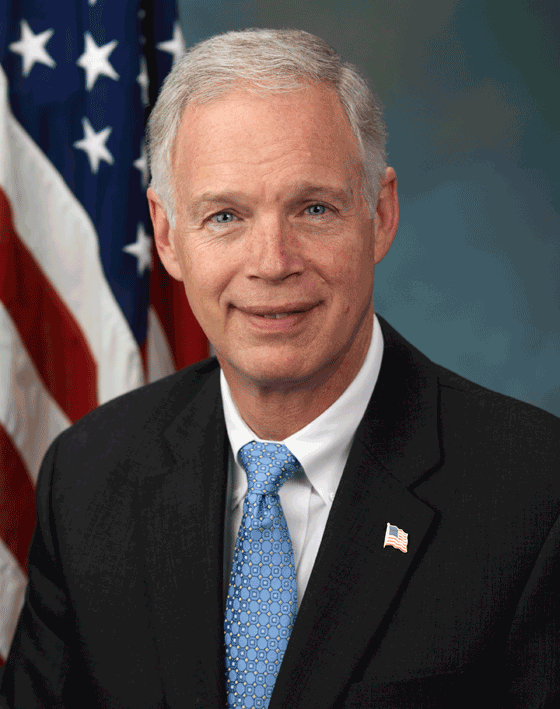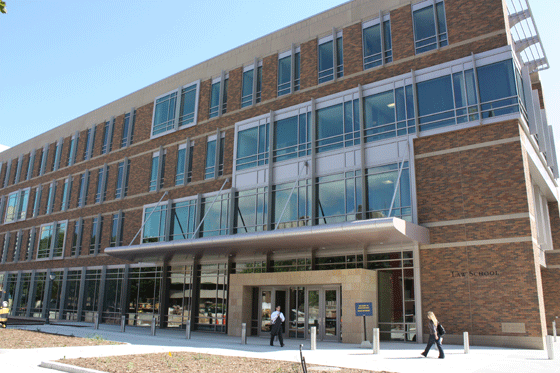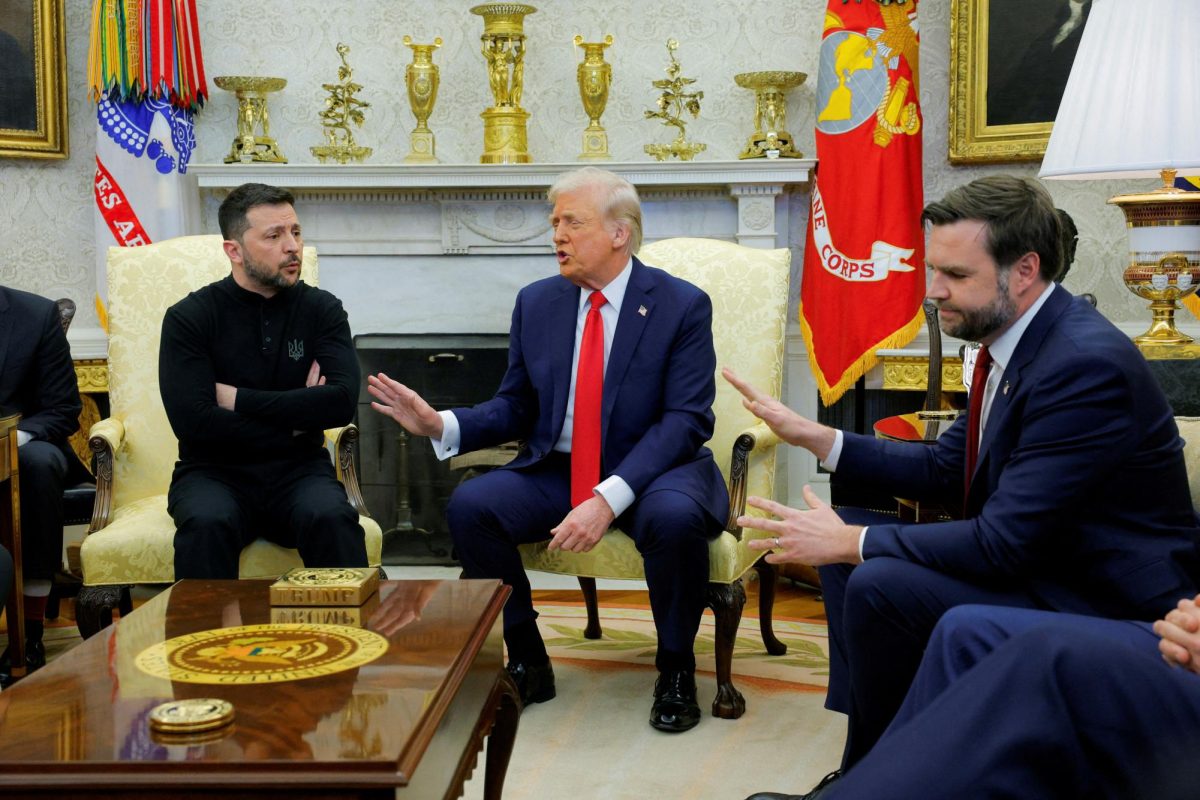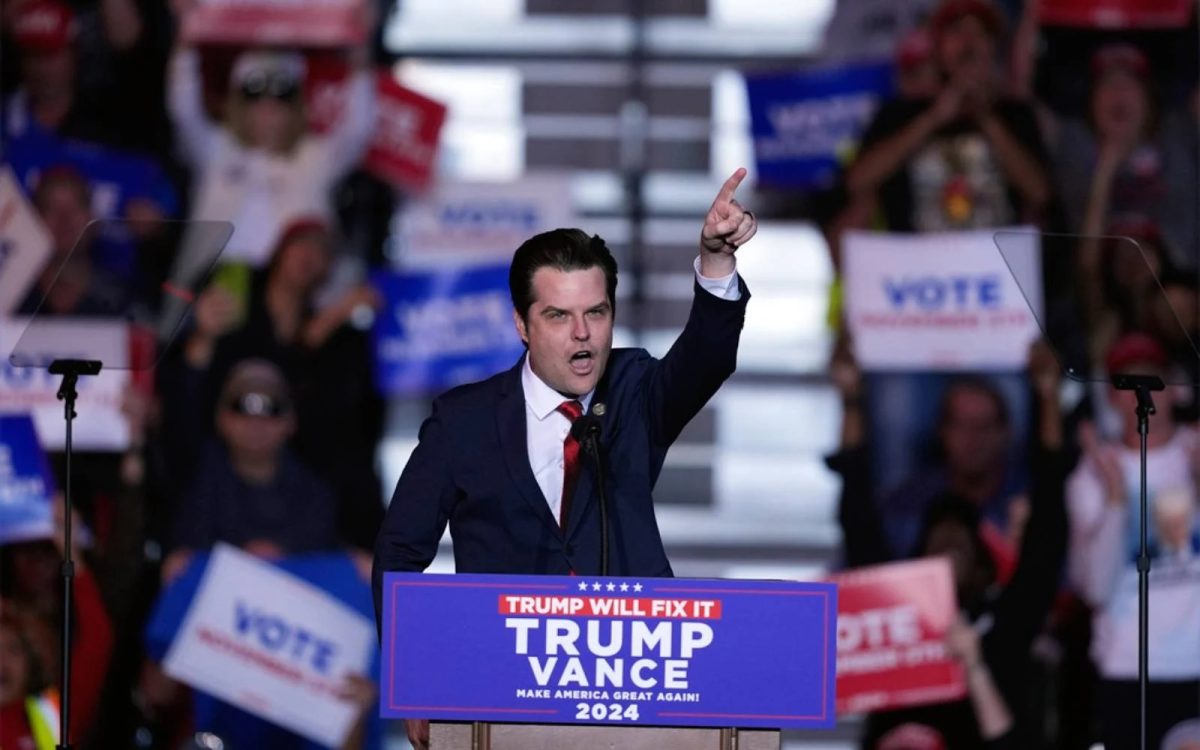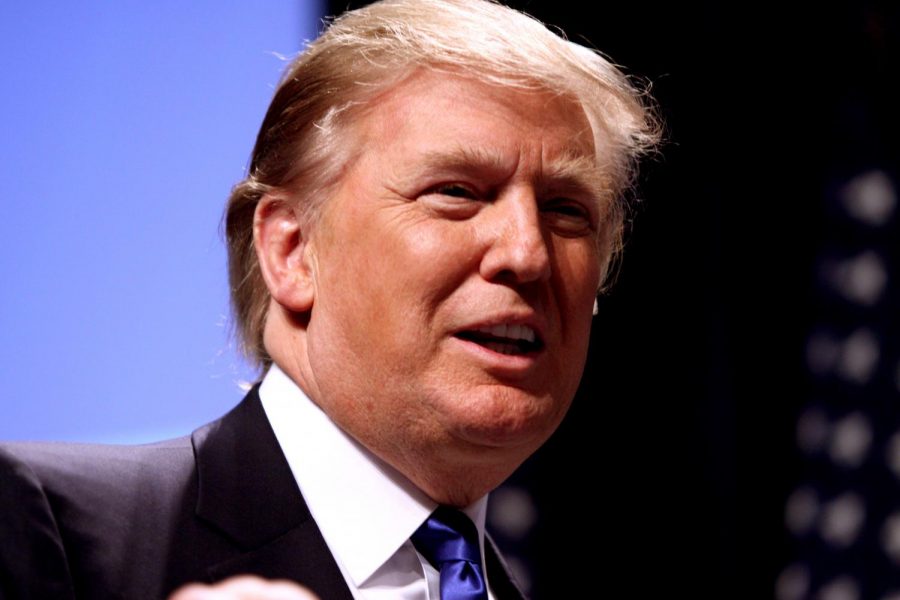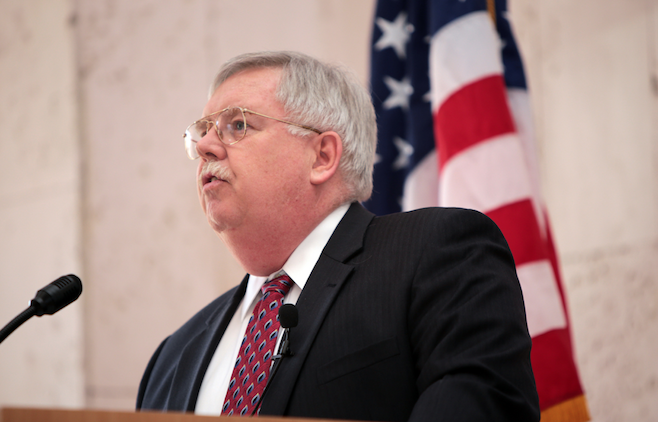Eliza Borysenko, a junior in the College of Health Sciences, said her dad was born in Ukraine and came to the U.S., so she still has family in Ukraine. She said this situation has been difficult for her to see.
“It definitely took me by surprise, but I think it was so alarming to see that this was still occurring,” Borysenko said.
Russian President Vladimir Putin called a “special military operation” against Ukraine on Feb. 24 causing bedlam around the world including Marquette University.
Lowell Barrington, associate professor of political science, said this situation is an active military aggression by Russia against Ukraine.
“It’s essentially an act of war, invading Ukraine, and trying to take it over,” Barrington said. “There was a sense initially that Russia might just try to move to the far Eastern parts where they have some pro-Russian separatists that … controlled territory that changed very quickly and this has now become a full attack from multiple directions.”
On Feb. 23, Ukraine called for a state of emergency after growing Russian forces came along its border.
On Feb. 27, Russia continues to encroach upon Kyiv, Kharkiv and Kherson. The Ukrainian defense ministry estimates that Russia has lost around 4,500 men, 150 tanks, 700 armored personnel carriers, seven fighter jets and 26 helicopters.
As of March 2, Russia has confirmed that 498 Russian soldiers have died and 1,597 soldiers have been injured and over 2,800 Ukrainian troops have died while over 3,700 have been injured.
In 2022, Ukrainian President Volodymyr Zelenskyy is not only defending “a war against Ukraine,” but also “against the entire democratic world.”
Despite having similar cultures, Barrington said having a democracy next door to Russia places Putin in an awkward situation in terms of his personal, populist, nationalist, autocratic and authoritarian system.
“When Russia went in, in 2014, it went in an invaded and actually took over Crimea,” Barrington said. “It’s basically forcibly taken that over and it now considers Crimea part of Russia. It’s a republic within Russia, according to Russia, that’s not internationally recognized, but that’s what Russia thinks.”
The Russian reaction comes after its reason to believe Ukraine had an interest in possibly joining the North Atlantic Treaty Organization.
“Ukraine being a part of NATO is a much bigger deal. It creates an even longer border with NATO, right against Russia,” Barrington said.
Elected in 2010, former Ukrainian president Viktor Yanukovych said Ukraine should remain “neutral” in cooperation with both Eastern and Western forces. In 2014, Yanukovych opposed a deal for greater assimilation with the European Union.
This caused mass protest across Ukraine as many Ukrainians wanted a closer relationship with the EU. Yanukovych tried to end the protests violently. Russia supported Yanukovych’s decisions throughout the crisis as the United States and Europe sided with the protestors.
After this decision, Ukraine’s parliament unanimously voted Yanukovych out of office after he fled Kyiv and denounced the protests as a “coup d’etat.”
Many countries around the world disagree with Russia’s decision to invade Ukraine and have responded by instilling sanctions against Russia.
Breaking its neutral stance for the first time, Switzerland adopted the same sanctions that the rest of the European Union has invoked against Russia Feb. 28 as well as their own.
“We are in an extraordinary situation where extraordinary measures could be decided,” President of Switzerland and Foreign Minister Ignazio Cassis said in a news conference in Bern, Switzerland.
The Council on Foreign Relations said these sanctions will most likely send Russia into economic pain, which will include rapid inflation and a drop of living standards.
As of March 7, the Russian ruble is worth 0.0078 of one U.S. dollar. It’s fallen over 26%.
Although it has not imposed sanctions against Russia, the Taliban, a deemed terrorist organization by the United Nations and Afghanistan government, disclosed a concern for the “real possibility of civilian casualties.”
“All sides need to desist from taking positions that could intensify the violence,” Abdul Qahar Balkhi, spokesperson for the Taliban, said in a tweet.
Statement concerning crisis in #Ukraine pic.twitter.com/Ck17sMrAWy
— Abdul Qahar Balkhi (@QaharBalkhi) February 25, 2022
The UN said that as of March 7 more than 1,551, 406 refugees have fled Ukraine.
“If Putin goes through Ukraine, takes over Ukraine, and then actually sends troops into Poland, he’s crazy. At that point … it’s essentially attacking the United States, according to the native agreements,” Barrington said. “This is largely going to stay contained to a conflict between Russia and Ukraine, but it doesn’t mean that we won’t be affected by it. And it doesn’t mean that we shouldn’t be finding ways to help the Ukrainians here.”
This story was written by Julia Abuzzahab, Connor Baldwin and TJ Dysart. They can be reached at julianna.abuzzahab@marquette.edu, connor.baldwin@marquette.edu and theodore.dysart@marquette.edu




